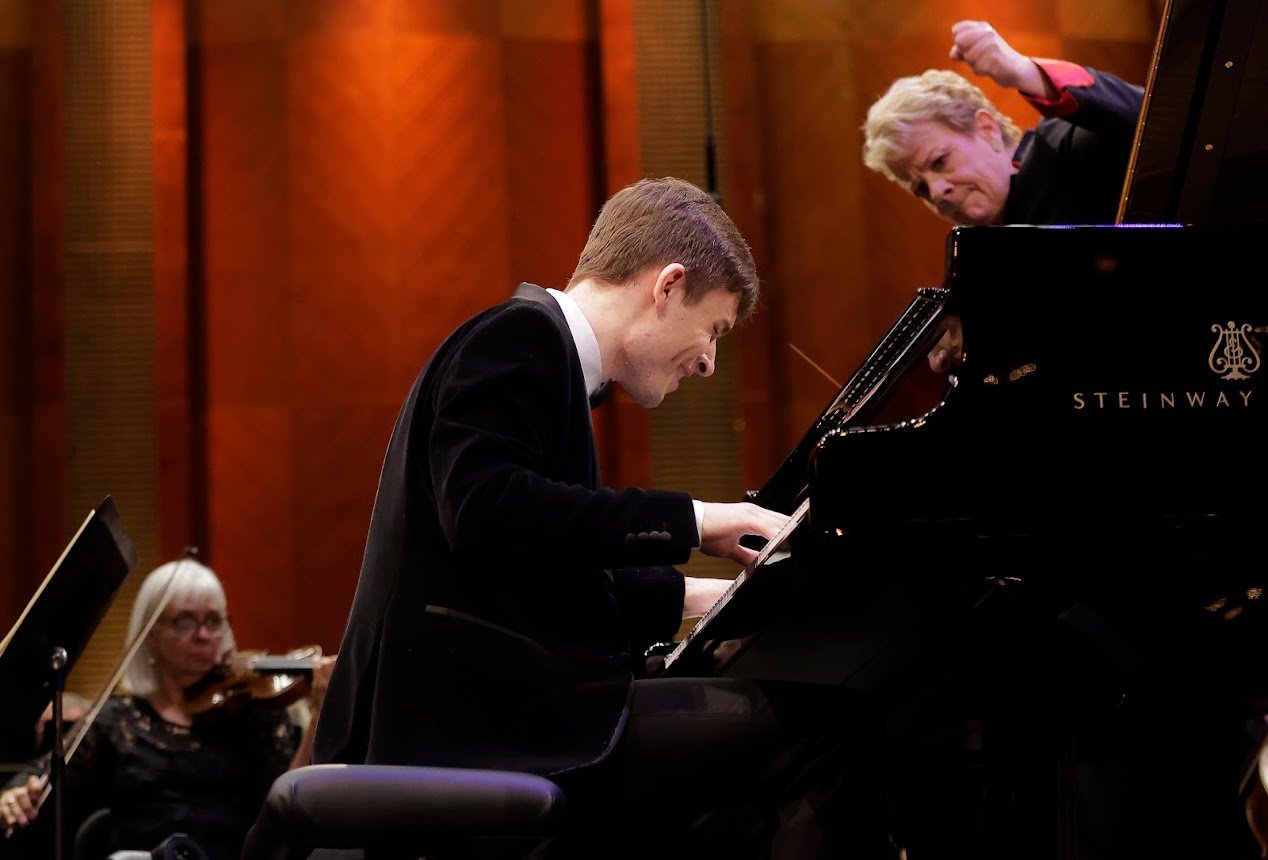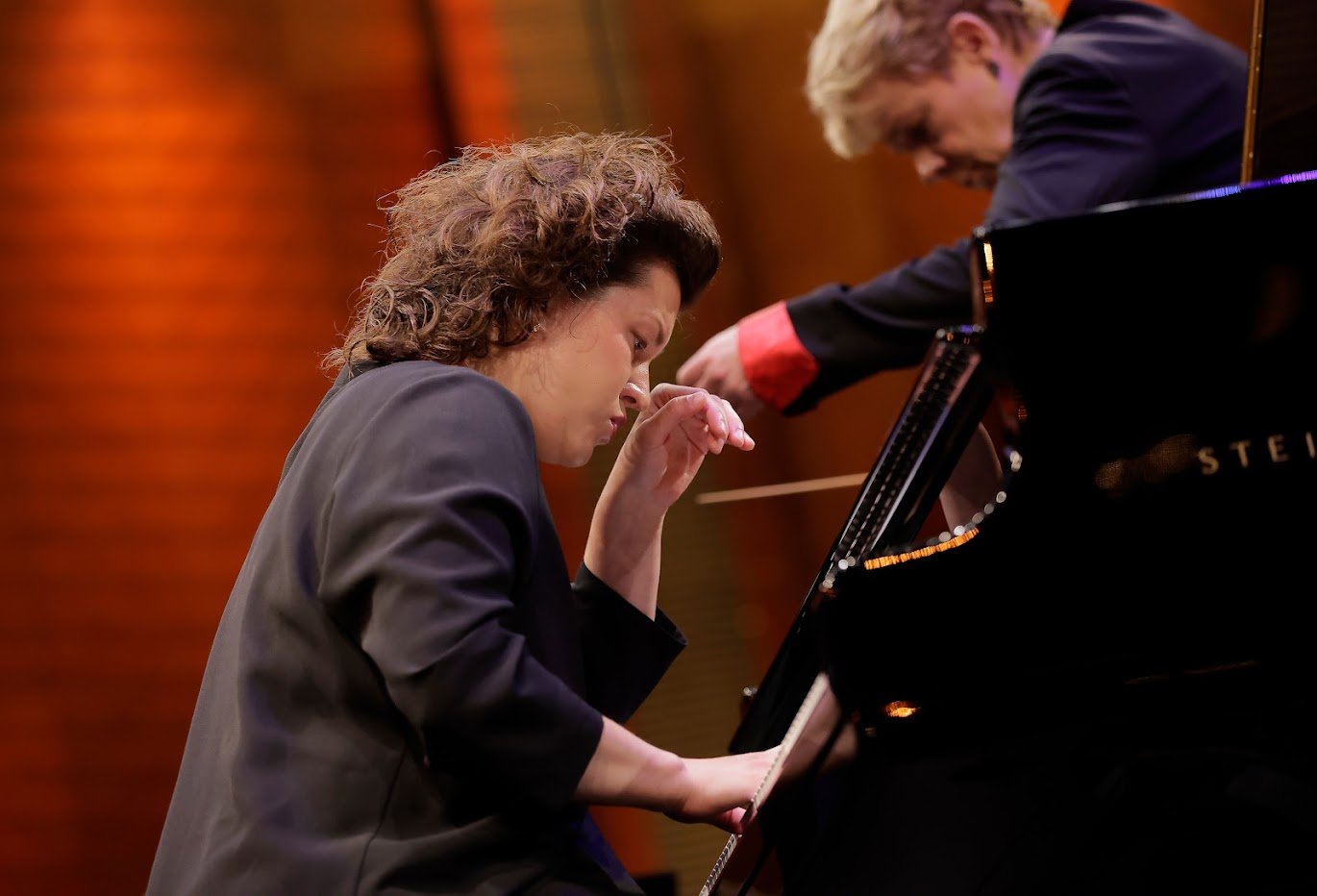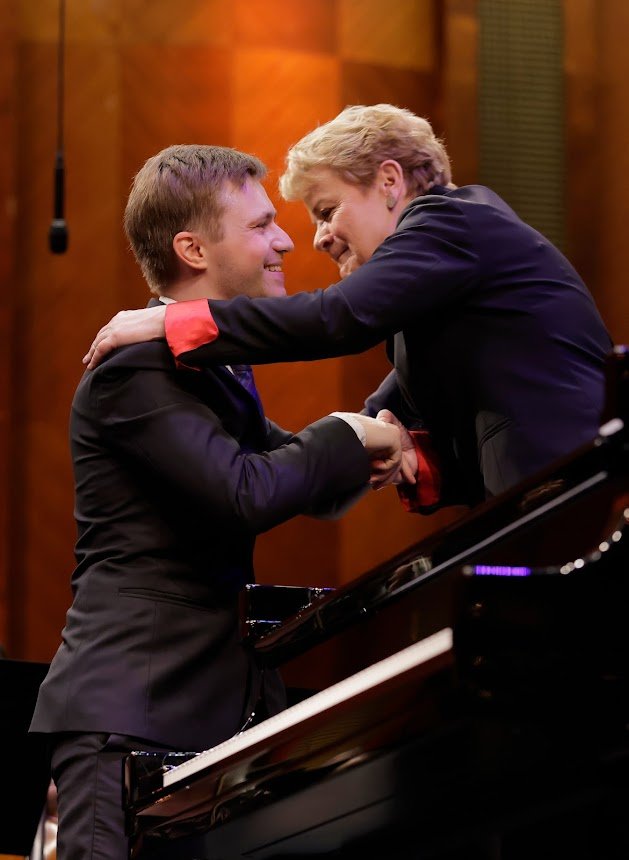Final Round Concert 2: Khandohi, Geniushene, Choni
—Wayne Lee Gay
Wednesday evening brought the second set of three concertos in the final round of the 2022 Cliburn Competition. All six finalists have now played the first of two final round concertos with the Fort Worth Symphony and conductor Marin Alsop. They will each play one more on Friday and Saturday as the monumental cycle of competition phases draws to a close.
Belarusian Uladzislau Khandohi, 20, opened Wednesday night with Rachmaninoff's Second Piano Concerto, to this listener the best performance so far in the finals. The opening phrase told all that was needed to know, with perfect voicing, a singing tone, and flawless control. Khandohi caressed the lyric second theme with a subtle extra touch of rubato beyond the usual in this well-worn work; the Liszt-like passage work at the beginning of the development section rippled.
Perfect pacing—including arresting pauses—characterized the Adagio second movement; the final measures of this movement flowed and receded like ocean tides. Khandohi created another hypnotic moment with a very slight, surprisingly effective slowing of tempo for the recapitulation of the main theme of the Finale. This Concerto fell into "warhorse" category during the middle years of the twentieth century, and it remains all-too-familiar to many audience members. But Khandohi's rendition in many ways brought a fresh quality.
As in her performance of Mozart's Concerto No. 25 in the semifinal round, Russian Anna Geniushene, 31, chose an eccentrically quiet dynamic level for Beethoven's Piano Concerto No.1. Conductor Alsop provided an almost whispered introduction; Geniushene broke above a mezzo piano only for an exuberant reading, at odds with the rest of her performance, of the cadenza (by Beethoven, with additions by Geniushene). Delicate passage-work and technical control characterized the first two movements, albeit undermined by the low volume level. The Presto Finale took on the aura of a frantic steeplechase, still with an undernourished volume level.
Prokofiev's Third Piano Concerto became a standard item in orchestral concerts and competitions during the closing decades of the twentieth century. Although its place in the repertoire has fallen somewhat, the engaging marriage of dissonant modernism, momentous energy, and romantic lyricism make it a great vehicle for any virtuoso able to conquer its demands. In the evening’s final performance, Ukrainian Dmytro Choni, 28, showed off fingers of steel in the opening movement, with a fine lyric tone and sure command of the many technical challenges. And the glorious second theme of the Finale, one of the finest tunes ever in any piano concerto, glowed as it moved from orchestra to piano. As the final movement progressed, Choni began to lag ever-so-slightly, and the final moments of an otherwise promising performance took on a hectic quality. .


